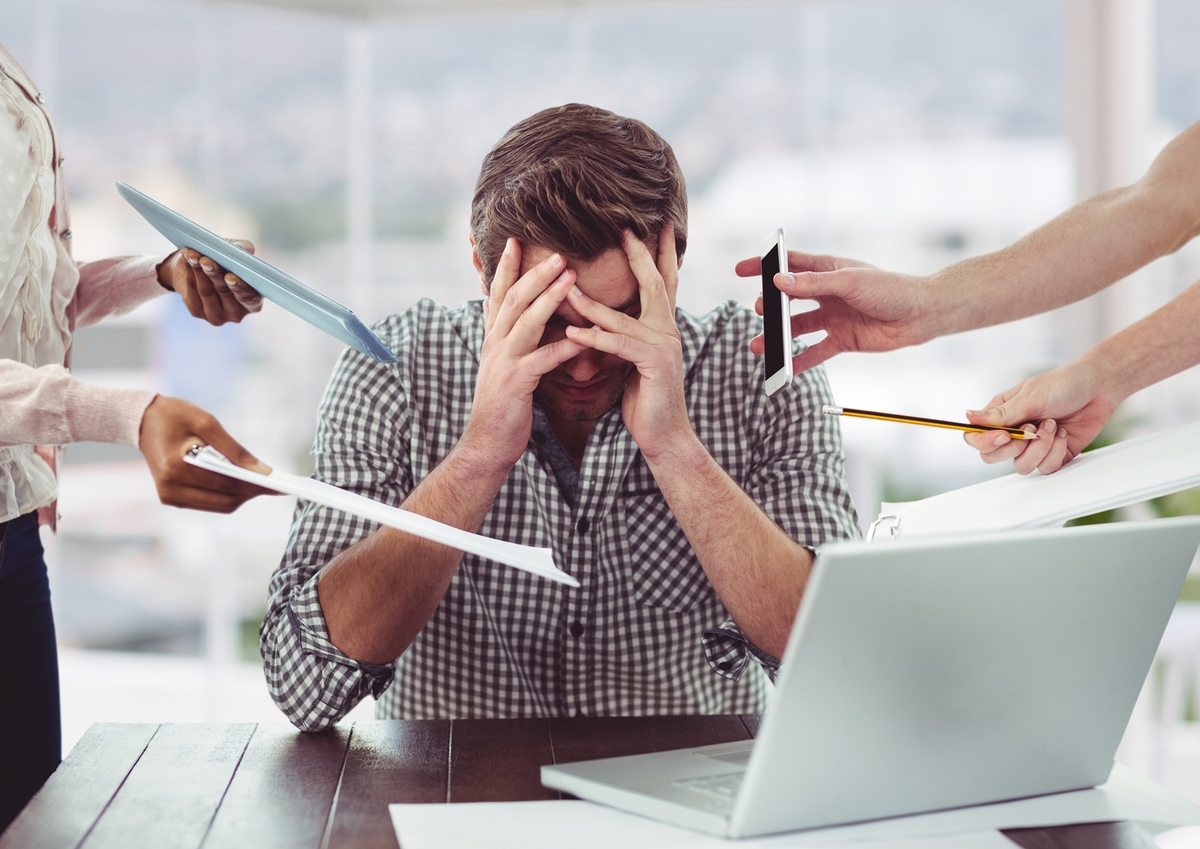The American Psychological Association's latest Stress in America report is packed full of damning statistics that could make you feel stressed all on their own:
- Seventy-four percent of US adults report that the stress they are under has had physical consequences such as poor sleep and fatigue.
- Younger people, especially Millennials (86 percent) and Gen Z-ers (84 percent), were most likely to be stressed.
- The most common causes of stress were work (see also: What can you do to reduce work-related stress?), finances, and the economy.
- Family responsibilities are the fourth most common cause of stress in America today.
- Other common stressors are relationships and personal safety, as well as health conditions and concerns.
- Worries about the COVID-19 pandemic are still a big source of stress.
You are likely familiar, if not with this particular report, with similar data — because to be quite frank, we're bombarded with it all the time.

Managing our emotions — including in ways that lead to life changes that improve our long-term wellbeing — becomes easier when we are correctly able to label those feelings, and address their root causes. Here, we will look at some of the underlying feelings that commonly get labeled as "stress" when they deserve their own labels.
Worries
Famously dubbed "the fear you manufacture" by leading security expert Gavin de Becker, worries are very cerebral. They creep up on us as persistent negative thoughts and can take up a whole lot of brain space if we nurture those thoughts. Worrying is an emotion, or a mental process, that relates to bad things that might happen in the future, but that have not happened yet.
Some common things we might worry about include:
- Will my children grow up to be healthy and happy?
- Will I arrive at the airport on time?
- Will the medical test results I'm waiting on turn out to be scary?
- Will I pay able to pay the rent?
Anxiety
Anxiety, which tends to be less specialized and more general, is worry on steroids. You don't just think negative thoughts, but also feel them deep in your body. Your muscles may become tense, you may suffer from headaches, you may feel nauseous, and you may go to great lengths to avoid the source of your anxiety.
We all experience anxiety sometimes, with coronavirus anxiety being one common example. When it becomes chronic and uncontrollable, this can lead to an anxiety disorder diagnosis, but not all types of anxiety require a diagnosis. The "garden variety" anxiety we all feel sometimes can easily be interpreted simply as "stress", but labeling it can help you dive deeper.
Sadness
The American Psychological Association describes sadness as "an emotional state of unhappiness", which is usually caused by a loss of some sort. Unlike worry and anxiety, this emotion is triggered by something that happened in the past or something that is currently happening.
As silly as it sounds, we don't always know that we're sad. Denial and emotional numbness are powerful mechanisms that separate us from our inner selves. It can be much easier to believe and tell others that you're "stressed" when your teen is going off to college, for instance, when what you are really feeling is deep sadness over the loss of an era.
Grieving or mourning is one form of sadness, in which we process the loss of a loved one, an era in our lives, a relationship, a or a job.
It is good to be aware that sadness can also express itself as anger — an externally-focused emotion that is often easier to cope with, especially for people with post-traumatic stress syndrome, as well as most men (who are socialized to avoid discussing feelings).
Boredom
As humans, we thrive when we feel that we have a purpose and a place in the world, as well as when our brains are occupied with interesting things. When those things are lacking, we feel bored — and the common misconception that you can only be bored if you're not busy causes many of us to label boredom as stress, instead.
Are you stuck in a job you hate and that doesn't fulfill you intellectually? Even if you're always extremely busy, every minute of your day filled with activities, you could be bored, and boredom can have a powerful negative impact on your wellbeing. What you need is a new mental challenge, and perhaps a new purpose.
Loneliness
We're all social creatures. Even the introverted and quirky among us. That means we crave meaningful connections with other humans. Not having them, or not having relationships that go deeper than casual work friendships, undeniably causes stress. The underlying cause is, in this case, social isolation and the loneliness that results.
Being Overwhelmed
Another vague and now frequently used term is "feeling" or "being" overwhelmed. This type of stress can result from any of these factors on their own, or a combination:
- Too many responsibilities, too little time.
- Too many decisions to make.
- A series of big changes in rapid succession, leavings us clueless about what to do next.
A Final Word
There are no easy solutions for any of these feelings, which are often labeled "stress". By being more introspective and examining what you are actually feeling more deeply, however, you can make strides that can ultimately improve your wellbeing. Each of these emotions requires a unique approach, and calling all uncomfortable emotions we feel "stress" can act as a maladaptive coping mechanism that allows us to avoid taking steps to improve our lives.
- Dittmann, Melissa (2003). Anger across the gender divide: Researchers strive to understand how men and women experience and express anger. Monitor on Psychology , (34), 3. American Psychological Association.
- www.apa.org/topics/anxiety#:~:text=Anxiety%20is%20an%20emotion%20characterized,recurring%20intrusive%20thoughts%20or%20concerns.
- www.apa.org/news/press/releases/2021/10/stress-pandemic-decision-making
- dictionary.apa.org/sadness
- www.tandfonline.com/doi/abs/10.1080/00222216.1999.11949853
- www.nia.nih.gov/news/social-isolation-loneliness-older-people-pose-health-risks#:~:text=Research%20has%20linked%20social%20isolation,Alzheimer's%20disease%2C%20and%20even%20death.
- journals.sagepub.com/doi/10.1177/0894318418807931
- www.sciencedirect.com/science/article/abs/pii/S0749597821000194


Your thoughts on this